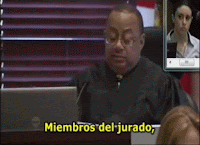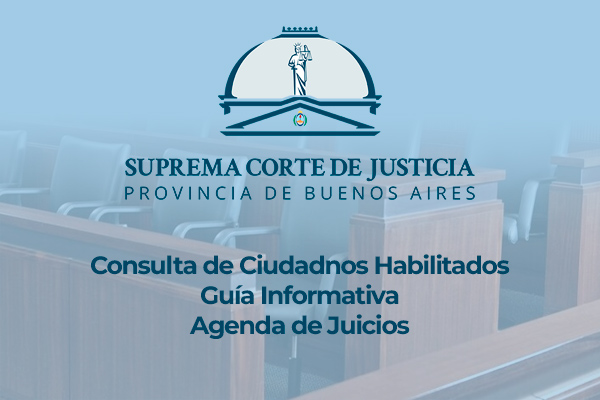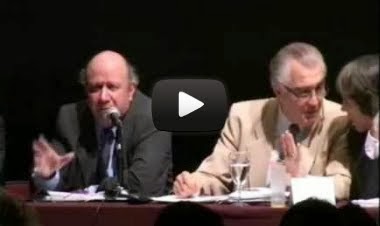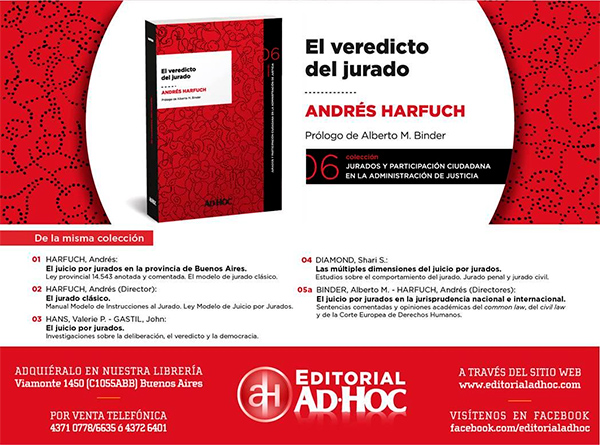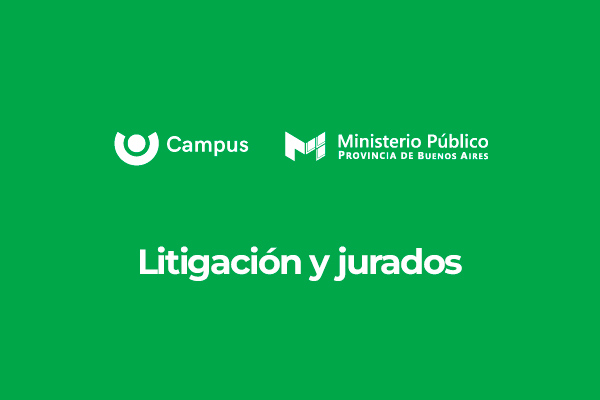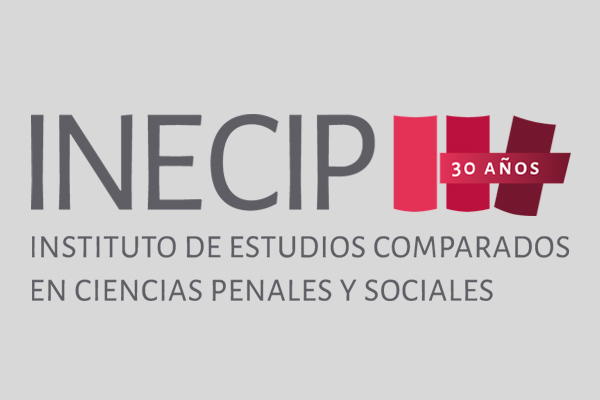 |
| The indigenous jury |
In what constitutes the first experience of its kind in the entire world, a jury of twelve members of the Qom and Wichi indigenous peoples found two men from the Qom community guilty of homicide.
The defendants are Jorge Ángel Díaz (perpetrator) and Matías Custodio Gabriel Aranda (accomplice), and the first fully indigenous jury in Latin America convicted them for the death of young Bruno Gabriel Quiroga, also Qom, in a knife fight.
Quiroga was killed by Díaz in the Curishi neighborhood of Castelli in the early hours of June 11, 2022, using a large knife provided by Aranda, which inflicted a mortal wound on Quiroga’s left leg by affecting the femoral vein.
Since the stab wound was to the leg, the defense claimed for the lesser included offence of involuntary manslaughter, but without success. Their own peers considered that the stabbing was with the intent to kill.
The historic trial took place in the city of Juan José Castelli, in the heart of the world famous Impenetrable Forest, where the Indigenous Peoples Qom, Wichi, and Moqoit have lived for almost twelve thousand years.
The jury trial law in Chaco, enacted in 2015 and reformed in 2020, establishes a triple requirement for jury selection in a way that is unique on the planet (see) (see more) (indigenous jury).
First, gender parity is required in all cases. Second, if the accused is indigenous, six of the twelve jurors must be indigenous, as was customary from the 12th century until the late 19th century in Anglo-Saxon common law (jury de medietate linguae). Lastly, and this is the great innovation worldwide, if the victim and the accused are indigenous, all twelve jurors must be indigenous.
This was what happened for the first time in Argentina, hence its enormous historical and political significance. Both the deceased young man and the accused were from the Qom People, which is why the first 100% indigenous jury in the world tried this case.
In this jury, there were four Qom men and four Qom women, and two Wichi men and two Wichi women. During the voir dire, both the prosecution and the defense challenged for cause and used their peremptories to remove all the white potential jurors. Incredible, but true.
When these laws were discussed in Argentina with gender parity and full indigenous integration, it was explicitly stated that the ideal of a fair cross section of the community clashed in reality with the underrepresentation of minorities that have existed and still persist in common law countries. The jury law of Chaco decided to remedy this inequity, and today Argentina shows the world its results for the very first time.
 |
| Elizabet González, Loxoi´che (Qom leaderess) |
««This a historic day for our Peoples»
Elizabet González, a key link between the Indigenous Peoples and the Judiciary, witnessed the entire trial and stated that for our Peoples, «this is a historic day». She described the experience as «very intense» and stated that it was «moving to see 80 potential jurors, 22 of whom belonged to Qom and Wichi Indigenous peoples.»
By order of Judge Raúl Rach, explained Loxoi’che González, «there were translators and interpreters in Qom and Wichi indigenous languages from the Judiciary for the voir dire hearing,» and «in some specific situations for the Wichi brothers, so they could understand some questions that were being asked» during the selection stage.
The Qom leaderess emphasized the «historical significance of the testimonies I was able to exchange with the members of this jury, being a part of it,» among which she highlighted one who «expressed the great commitment and responsibility they undertook.»
Finally, she called for the Chaco State to «comply with article 4 of Law 2374-b, which establishes consultation for the formal implementation of indigenous jury trials.
 |
| The defendants and the prosecution |
The judge was Raúl Rach. The prosecutor was Carlos Fabricio Calvo, and the complainant was Carolina Aquino. The accused were assisted by the public defenders Iván Lozina and Gustavo Kleisinger. The organization of the trial by the Jury Trial Judicial Office was led by Dr. Alejandro Darío Pellizzari.
THE VERDICT
Read more news here:
– Poder Judicial de Chaco (24/04/24): «Histórico: Jurado popular íntegramente indígena actuó en juicio contra imputados qom» (ver)
– La Nación (1/05/24): «Un homicidio, dos acusados. Se hizo en la Argentina el primer juicio por jurados indígena del mundo» (ver)
– Perfil (1/05/24): «Cómo fue el primer juicio por jurado del mundo integrado solo por indígenas» (ver)

